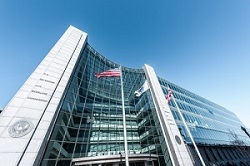SEC Awards $114 Million to Two Whistleblowers, Including an Apparent Outsider, Passing the $1 Billion Mark with a Bang

The SEC announced $114 million in whistleblower awards to two unnamed individuals whose information substantially contributed to an SEC enforcement action and two related actions by other enforcement agencies. With this award, the SEC can say it has issued more than $1 billion in awards to whistleblowers – truly, a milestone worth celebrating.
As is typical with SEC press releases about whistleblower awards, information about the whistleblowers and the underlying actions is redacted. The order and press release do make clear that an initial whistleblower received an award of $110 million – the second largest award the SEC has ever made – and a second received an award of $4 million. A third individual’s claim for a share of the award was denied. Beyond these basic details, there is information in the SEC’s order and in its press release that tell us some interesting and important things about the SEC Whistleblower Program.
You Don’t Need to be an Insider to be a Whistleblower
According to the SEC’s Order, the whistleblower who received $110 million provided information based on their “independent analysis.” While we do not know whether this whistleblower had any role at the target company, it appears that they were an outsider, at least with respect to the wrongful conduct at issue.
Specifically, the SEC order notes that this individual “utilized publicly available information in a way that went beyond the information itself” and offered investigators “important insights” into the misconduct at issue. This information about financial fraud and securities law violations “was derived from multiple sources that were not readily identified and accessed by members of the public without specialized knowledge, unusual effort, or substantial cost.”
 The SEC Whistleblower Program does not require that whistleblowers base their submissions on non-public information. This makes it easier for outsiders to be whistleblowers. However, whistleblowers who have discovered fraud based on information that is already public must do more than point to the public filings if they wish for SEC attention. A footnote in the SEC’s order puts this as well as it can be: the sources relied upon by the primary whistleblower “collectively raised a strong inference of securities law violations that was not otherwise reasonably inferable from any of the sources individually. In all, [the whistleblower’s] own examination, evaluation, and analysis contributed significant independent information that bridged the gap between certain publicly available information and the possible securities violations.”
The SEC Whistleblower Program does not require that whistleblowers base their submissions on non-public information. This makes it easier for outsiders to be whistleblowers. However, whistleblowers who have discovered fraud based on information that is already public must do more than point to the public filings if they wish for SEC attention. A footnote in the SEC’s order puts this as well as it can be: the sources relied upon by the primary whistleblower “collectively raised a strong inference of securities law violations that was not otherwise reasonably inferable from any of the sources individually. In all, [the whistleblower’s] own examination, evaluation, and analysis contributed significant independent information that bridged the gap between certain publicly available information and the possible securities violations.”
By making their second largest whistleblower award ever to an individual who submitted a TCR based on independent analysis of publicly-available information, the SEC conclusively demonstrates that its acceptance of “outsider” whistleblowers goes far beyond a commitment on paper. While such individuals should expect that they will need to show how their information “bridges the gap,” the SEC can send no stronger message about its interest in hearing from outsiders.
SEC Whistleblowers Can Receive Awards Based on Recoveries by other Enforcement Authorities
Conduct that violates the securities laws can also give rise to actions by other government enforcement agencies. The SEC Whistleblower Program rules clearly provide for whistleblower awards based on amounts paid in “related actions,” defined as a judicial or administrative action brought by: the U.S. Department of Justice, a state attorney general, a self-regulatory organization, or another agency including the Comptroller of the Currency, the Federal Reserve System, the FDIC, or the Office of Thrift Supervision.
Here, the SEC’s Order makes clear that the primary whistleblower’s information contributed to recoveries in an SEC enforcement action, and in two related actions. That whistleblower’s $110 million award “consists of an approximately $40 million award in connection with an SEC case and an approximately $70 million award arising out of related actions by another agency.”
While the whistleblower could have reported directly to those other agencies, it is reporting to the SEC that made them eligible for the award on the related action. To receive an award based on a recovery in a related action, it is also important that whistleblowers follow all applicable procedures to claim their award.
Reporting Early Matters
The SEC order notes that at the time of the first whistleblower’s submission, the SEC had already opened its own investigation into the company and conduct at issue. Despite this, the value of the whistleblower’s information – its ability to “bridge the gap” in the investigation – merited an award.
The second whistleblower, who received an award of only $4 million, reported later, not only after the Commission had opened its investigation, but after it had “undertaken significant investigative steps.” While it’s also true that this individual is said to have provided information and assistance that was “much more limited” than that provided by the primary whistleblower, the later reporting no doubt mattered.
The earlier a whistleblower reports misconduct, the better. While the SEC Whistleblower Program does not have a bar on awards to later-filing whistleblowers, delays in reporting can potentially limit recoveries.
Awards Provide Real Incentives to Whistleblowers
 As said above, with this award, the SEC has paid more than $1 billion in whistleblower awards. These awards, to more than 207 whistleblowers, include more than $500 million in awards in Fiscal Year 2021 alone. The pandemic has not slowed down the SEC Whistleblower Program. This award is the second-largest in the program’s history, with the previous highest award issued just last October. In its Fiscal Year 2020 Annual Report, the SEC reported that enforcement matters brought with information from meritorious whistleblowers have resulted in orders for more than $2.7 billion in total monetary sanctions.
As said above, with this award, the SEC has paid more than $1 billion in whistleblower awards. These awards, to more than 207 whistleblowers, include more than $500 million in awards in Fiscal Year 2021 alone. The pandemic has not slowed down the SEC Whistleblower Program. This award is the second-largest in the program’s history, with the previous highest award issued just last October. In its Fiscal Year 2020 Annual Report, the SEC reported that enforcement matters brought with information from meritorious whistleblowers have resulted in orders for more than $2.7 billion in total monetary sanctions.
Financial awards to whistleblowers are clearly having an impact, and incentivizing the reporting of wrongful conduct. In announcing these awards, SEC Chair Gary Gensler stated that the awards “underscore[] the important role that whistleblowers play in helping the SEC detect, investigate, and prosecute potential violations of the securities laws.” The Director of the Enforcement Division, Gurbir S. Grewal, was noted that “the whistleblower program has been instrumental to the success of numerous enforcement actions,” and expressed a hope that these awards “encourage[] whistleblowers to continue to come forward with credible information about potential violations of the securities laws.”
Read More:
- The SEC Whistleblower Reward Program
- What Potential Whistleblowers Need to Know About the Dodd-Frank Act
- Financial & Investment Fraud
- The Constantine Cannon Whistleblower Team
- Have information about potential fraud? Questions about the SEC Whistleblower Program? Contact us for a free confidential consultation.
Tagged in: Financial and Investment Fraud, SEC Whistleblower Reward Program, Securities Fraud, Whistleblower Rewards,